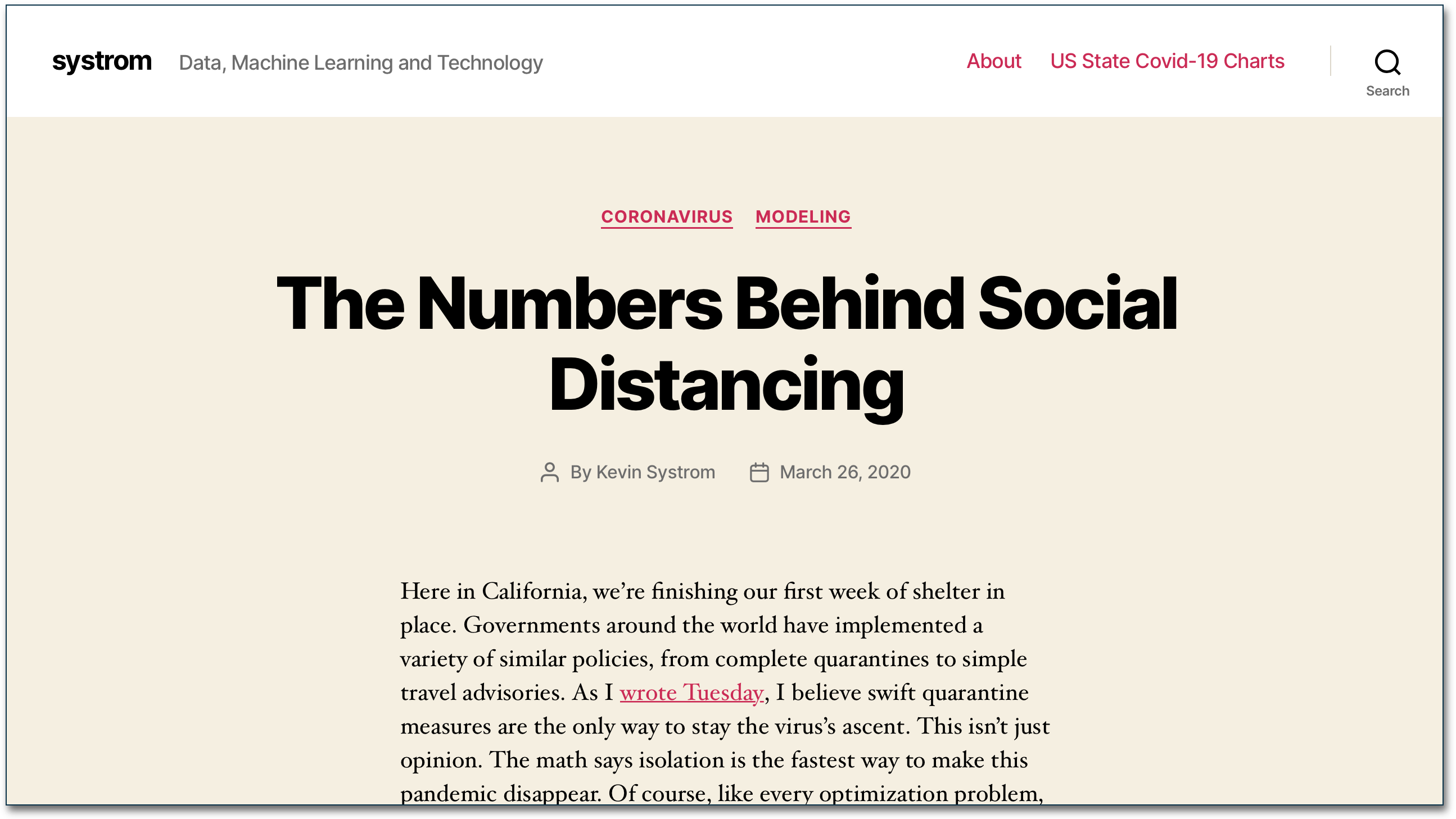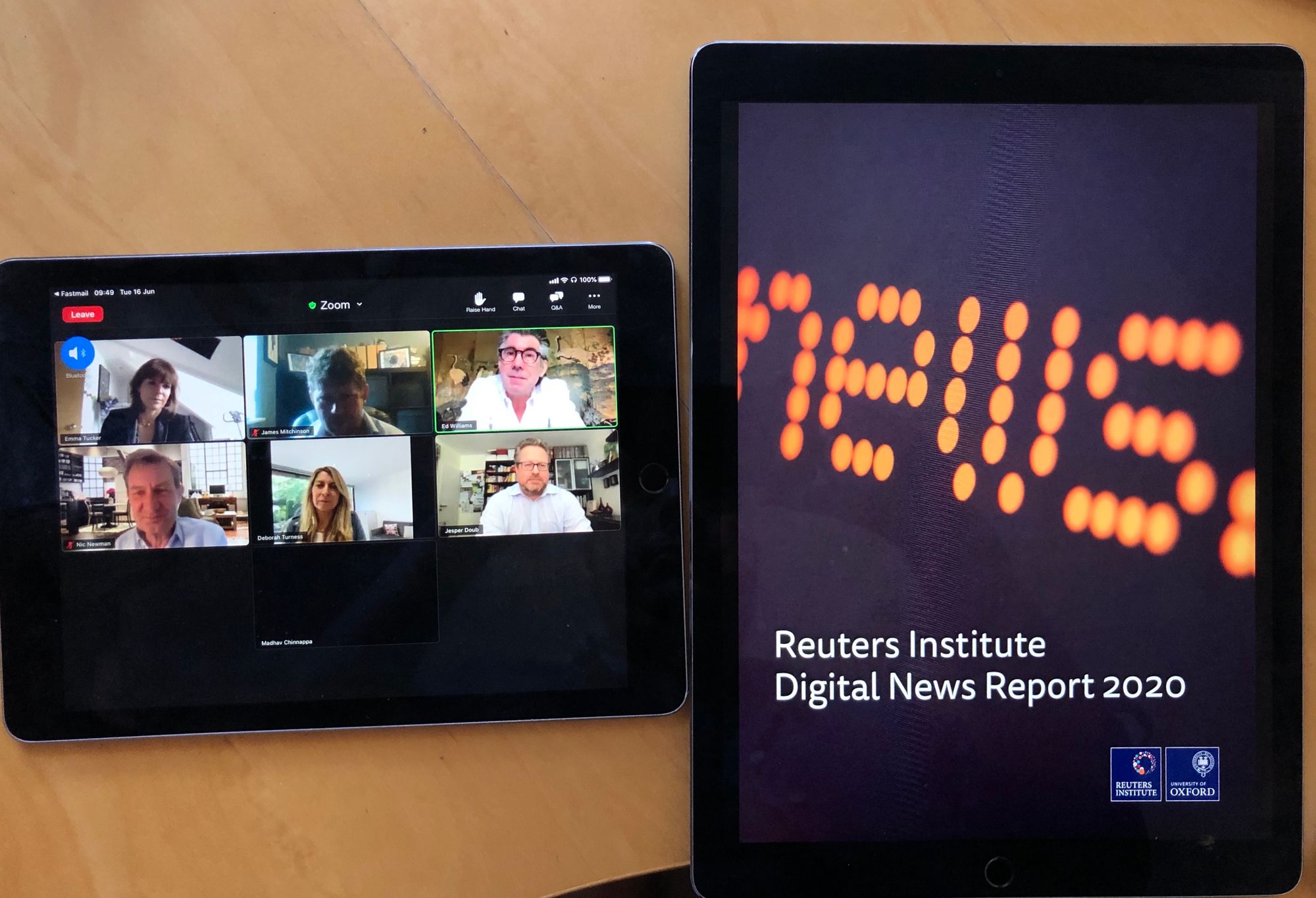
The top OM&HB posts of 2020: #10 to #6
In the first of two posts looking back at 2020, let's look at the lessons learnt from five of the most popular posts on this site.
In these, the dying days of the hell year, it seems right to maintain at least one tradition from previous years: my quick traffic review of the year. If you've been trained by me on SEO or content strategy — or even analytics — you'll know how much value I place on long-term views of metrics.
And yes, I apply that to my own site.
So here's the first of two parts, that between them will chart the top 10 posts by traffic this year. I've also tried to draw out some useful lessons and give you some insight into my thinking. I hope you find it useful.
#10 — Kevin Systrom's blog is all about coronavirus and maths
I am amused to see this down at the bottom of our top ten. This is the most gratuitous piece I wrote this year. I noted a sudden surge in search traffic to some very old posts of mine about Kevin Systrom, the co-founder of Instagram, mainly for phrases like “Kevin Systrom blog”. It turned out that he'd launched a blog. So I wrote a quick hot take on it, SEO optimised it to within an inch of its life…
…and it worked.
There are two lessons here:
- I still know my SEO stuff
- I really should apply it for more useful purposes

#9 — What the new newsletters can learn from the early days of blogging
Oh, this was a good one. I'm proud of it (unlike #10). And I really ought to write a follow-up: one for my 2021 ideas list.
In the months since this was published, the connections between blogging and the new newsletters have become more and more obvious. It's more than a little troubling to me that what we used to call the blogosphere is being recreated within the semi-walled (fenced?) garden of Substack.
But the parallels are undeniable.

#8 — Dominic Cummings’ blogpost, direct dialogue and its threat to mainstream political journalism
Oh, this was another good one. (The advantage of having the memory of a goldfish when it comes to my own writing is that it is sometimes a pleasant surprise when I reread old work.)
This piece was largely wrong as it turned out, but it was hard to see that when I wrote it back in January. Who knew that Cummings would become better known for a couple of ill-judged drives in the midst of a pandemic, and an unceremonious firing towards the end of the year?
Had the world not taken a COVID handbrake turn, things might have played out more like I predicted. There might yet be evergreen content potential in this one — it all depends if "Classic Dom" decides to blog again…

#7 — Digital News Report 2020: the trust crisis and its solutions
Oh, here's a surprise. I hadn't realised how well this one did. One of the joys of the last couple of years has been getting on the press list for the Reuters Institute and getting advance copies of some of their reports. (Admittedly, sometimes only about 12 hours in advance, which can be challenging to act on.)
This was one of the two biggies that Nic Newman shepherds to fruition every year, and I spent a lot of time picking through the report to draw out the threads that most applied to my work in engaged journalism and audience growth. And people clearly appreciated the effort.
Looking forward to doing more of this in 2021. There's increasing amounts of good research out there, and drawing it together and publicising it to people who might not otherwise encounter it is something I want to concentrate on.
Oh, and trust in journalism is one of my themes for 2021, too.

#6 — General Election 2019: the news media failed profoundly — but not in the way you think
It's back to the Reuters Institute well again, this time for their research into media coverage of the 2019 General Election, that happened about three decades ago…
This really shows the value of serious research in informing the discussion about the future of journalism — and in debunking the assumptions we make in media discussion circles. It's perhaps a sign of how central political reporting is to news journalism generally that this piece out-performed the one above, but not by much.
That's grounds for hope.

It's interesting that the bottom half of the top ten is all pieces written this year. That's unusual for me, a big fan of evergreen content. Will that hold true for the top five?
Ready for the top five? The very top post was recent — and did more traffic than all these posts put together.
I'm such a tease.

Sign up for e-mail updates
Join the newsletter to receive the latest posts in your inbox.











